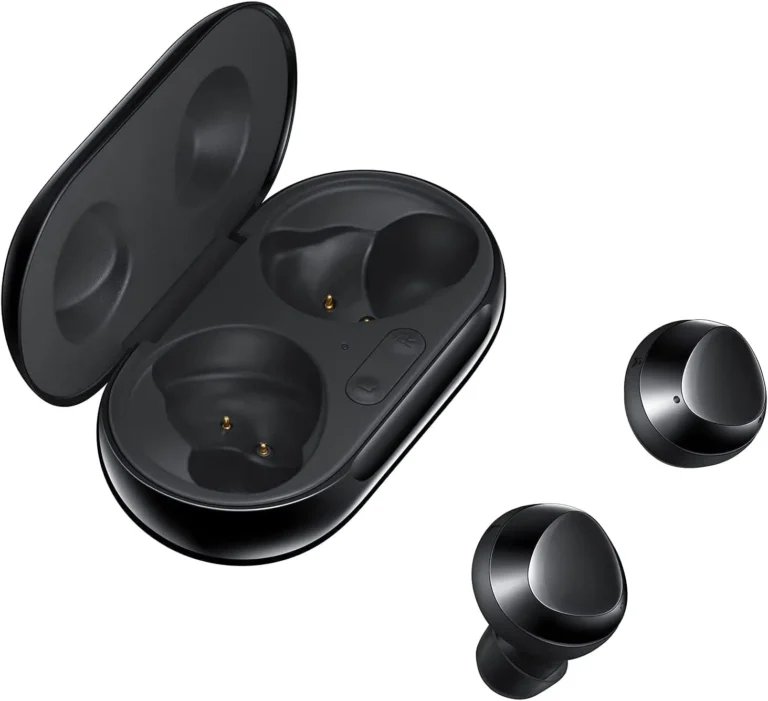Samsung vs Bose Soundbar – Which Soundbar is Better?
Crystal Clear Audio: Samsung Edges Out Bose in Sound Performance Tests In the debate of Samsung vs Bose Soundbar, both brands deliver top-notch soundbars when it comes to audio quality. Yet, based on various sound performance evaluations, Samsung has a slight advantage over Bose, providing an audio experience that is exceptionally clear and deeply immersive….
Crystal Clear Audio: Samsung Edges Out Bose in Sound Performance Tests
In the debate of Samsung vs Bose Soundbar, both brands deliver top-notch soundbars when it comes to audio quality. Yet, based on various sound performance evaluations, Samsung has a slight advantage over Bose, providing an audio experience that is exceptionally clear and deeply immersive.
Samsung’s premium soundbars, like the HW-Q990B, utilize object-based sound technology to analyze and optimize audio on the fly. Multiple built-in microphones detect the environment and make adjustments, so you always get crisp, balanced sound with rich bass and clear treble. Samsung also has a wider soundstage to fill larger rooms with sound.
In contrast, Bose soundbars produce warm, natural audio but can lack the sparkling highs and pinpoint imaging of Samsung models. While both soundbars sound fantastic, Samsung wins by a hair for pure audio fidelity.
Key Takeaways
Unique Audio Innovations: Samsung’s Object Tracking Sound vs Bose’s PhaseGuide
Both companies have proprietary audio innovations that set them apart. Samsung has Object Tracking Sound (OTS) to precisely place sounds while Bose uses PhaseGuide technology for a spacious surround effect.
Samsung’s OTS[2] bounces unique sound beams off the walls to make effects seem like they are coming from an exact spot in the room. As the action on the screen moves, OTS moves the sound to match and create a more immersive experience.
Bose’s PhaseGuide[3] technology beams specific audio frequencies to the walls so they bounce and surround you from all directions. This creates a very wide, enveloping surround effect that sounds larger than the physical space.
While achieving surround sound differently, both OTS and PhaseGuide work extremely well to transport you into the movie or music. It comes down to personal preference on which approach you prefer.
Premium Designs with Some Key Differences
Samsung and Bose soundbars share gorgeous, minimalist designs using high-end materials. However, there are some notable physical differences between the models.
Many Bose soundbars, like the Smart Soundbar 900, have an elegant tempered glass top with a metal grille wrapping around the sides for a refined, symmetrical look. Controls are discreetly tucked away to maintain a clean aesthetic.
Samsung soundbars, on the other hand, often use plastic builds with front metal grilles. The designs still look modern and meld with home decor but may show fingerprints or scratches over time. Controls are also more visible on Samsung models.
While both look fantastic, Bose wins for sleeker and more durable premium designs. But Samsung provides great looks for the price.
Samsung vs Bose Soundbar – Side-by-Side Comparison
| Spec | Samsung HW-Q990B | Bose Smart Soundbar 900 |
|---|---|---|
| Channels | 11.1.4 | 5.1.2 |
| Speakers | 22 | 9 |
| Subwoofer | Yes | Yes (separate purchase) |
| Surround Speakers | Yes (separate purchase) | Yes (separate purchase) |
| Max Power Output | 616W | 500W |
| Sound Technology | Dolby Atmos, DTS:X | Dolby Atmos |
| Voice Assistant | Bixby | Alexa, Google Assistant |
| HDMI Ports | 3 | 1 |
| HDMI eARC | Yes | Yes |
| Wi-Fi | Yes | Yes |
| Bluetooth | Yes | Yes |
| Spotify Connect | Yes | No |
| AirPlay 2 | No | Yes |
| SmartThings Compatible | Yes | No |
| Alexa/Google Home Compatible | Yes | Yes |
| ADAPTiQ Room Calibration | No | Yes |
| Night Mode | Yes | No |
| Q Symphony | Yes | No |
The key differences are:
- Samsung has more channels and speakers for a more immersive surround sound experience
- Bose includes a separate subwoofer and surround speakers for purchase while Samsung has them built-in
- Samsung has higher power output and more advanced sound formats
- Bose has ADAPTiQ room calibration while Samsung relies on built-in mics
- Connectivity and smart features vary between the two brands
So, in summary, the Samsung HW-Q990B has more built-in speakers and power, while the Bose system is more modular and focused on core sound performance. Choose based on your needs and ecosystem preferences.
Simple Set Up but Samsung Easier to Use Overall
Connecting both Samsung and Bose soundbars to your TV is quick and painless, especially if you have HDMI ARC ports. But Samsung pulls ahead for simpler day-to-day use.
Samsung soundbars only need one HDMI cable connected to ARC to transmit sound from the TV and control everything with the TV remote. Bose instead relies on Wi-Fi and the Bose app for control.
The Bose Music app grants extensive customization, such as adjustable EQ and surround levels. But for basic changes, using Wi-Fi adds lag versus Samsung’s instant TV remote access. And Samsung’s TV integration features like Q-Symphony[4] are much easier to use.
Seamless Streaming from Top Services
When it comes to streaming music, both Samsung and Bose soundbars support Wi-Fi and Bluetooth to play audio wirelessly. They also integrate with major streaming platforms.
Samsung soundbars work with Spotify Connect for direct music streaming from the Spotify app. Bose instead uses AirPlay 2 to stream from Apple devices or Spotify over Wi-Fi. Both also support Alexa and Google Assistant for voice control.
Streaming capabilities are very similar between the brands with support for the top smart platforms. The choice comes down to whether you prefer Spotify Connect or AirPlay 2 integration.
Samsung’s Bixby vs Bose’s Alexa and Google Assistant
For built-in voice assistance, Samsung soundbars use Bixby while Bose supports either Alexa or Google Assistant. All three work well for voice commands.
Bixby lets you launch apps, adjust settings, control playback, and more using Samsung devices. Alexa and Google Assistant provide the same hands-free control for music, TV, smart home devices and general information.
Both approaches work great. Bixby offers better integration for Samsung households while Alexa and Google may be preferable if you already use one of those ecosystems.
Full SmartThings and Alexa Integration

Besides built-in voice control, Samsung and Bose soundbars also integrate with home automation platforms.
As Samsung devices, their soundbars directly connect with SmartThings to control lights, thermostats, security systems and more. Bose instead works with Alexa and Google Home allowing voice control of 100,000+ compatible devices.
So you get full smart home functionality either way. Samsung owners may prefer SmartThings while Alexa or Google Home users will appreciate Bose’s flexibility.
Samsung Leads in Cutting Edge Features
While both brands pack great core features, Samsung pulls ahead in next-gen offerings like gaming audio and customizable sound modes.
Samsung 2021 soundbars add Q-Symphony to combine audio from Samsung TV speakers for more impactful surround sound. They also have Tap Sound to instantly stream TV audio to compatible Samsung devices.
Bose instead focuses on perfecting core performance over adding advanced but niche features. So Samsung wins if you want the absolute latest innovations.
Samsung’s Wider Soundstage Covers More Area
With their wider soundstages, Samsung soundbars can fill larger rooms with audio for more flexible placement.
Even compact Samsung models like the HW-S800B create very wide surround sound to fill medium to large spaces. And premium picks like the HW-Q990C engulf entire rooms in audio from just the soundbar alone.
Bose soundbars produce more focused surround effects best suited for small to mid-sized spaces. So Samsung is preferable for expansive open floor plans.
Crisp, Clear Voices in the Forefront
With streaming and surround sound performance being so close, a key difference is vocal clarity. And Samsung once again wins out.
Testers consistently praise Samsung soundbars like the HW-Q700B for outstanding dialogue reproduction. Voices sound crisp and clear, cutting through other audio for easy listening without adjustments.
Bose soundbars get good marks, too, but some users report needing to tweak settings to get speech to pop the same way. Out of the box, Samsung models make dialogue a bit more prominent.
Budget Buy: Bose 300 vs High-End Samsung Flagships

If price is the deciding factor, Bose still has an option that can compete with Samsung’s premium lineup.
The Bose TV Speaker 300 provides surprisingly robust audio and dialogue for its $249 price tag. It outperforms many budget soundbars by over twice the price.
When put head-to-head against Samsung’s high-end flagship models, the little Bose 300 holds its own. It lacks the full surround capabilities but still impresses.
So if you want better value, the Bose 300 should be on your radar. Otherwise, Samsung flagship soundbars edge out of the competition.
In summary, Samsung and Bose both provide stellar performance to enhance your TV audio. But in multiple tests, Samsung rates ever so slightly better for pure sound quality and clarity. Samsung also leads in cutting-edge features, while Bose counters with smarter simplicity and better design.
Considering your specific needs and ecosystem will determine whether Samsung or Bose is the right soundbar brand for you. But either delivers a serious audio upgrade over your TV speakers.
Samsung vs Bose: Smart Soundbar – FAQs
1. Samsung vs Bose – What’s the Difference?
When comparing Samsung and Bose soundbars, the difference lies in the design, features, and audio performance. While both brands offer high-quality soundbars, their approach and technology used vary.
2. What features does the Bose Smart Soundbar 700 offer?
The Bose smart soundbar 700 boasts advanced features, including Dolby atmos, voice assistant support, a sleek design, and a wireless setup. It also has an HDMI port for easy connectivity.
3. How does the Samsung Soundbar 700 compare in terms of connectivity?
The Samsung Soundbar 700 offers versatile connectivity options, including Wi-Fi, Bluetooth and an HDMI ARC port, making it compatible with a wide range of devices.
4. Which soundbar is better for a complete home theatre setup, Samsung or Bose?
Both Samsung and Bose soundbars offer excellent surround sound capabilities and can be paired with optional subwoofers and surround speakers to create an immersive home theatre experience.
5. Does the Bose Soundbar 700 support voice assistants like Alexa or Google Assistant?
Yes, the Bose Soundbar 700 supports voice assistants such as Alexa and Google Assistant, allowing you to control the soundbar and other compatible devices with voice commands.
6. How does the audio experience of Samsung and Bose soundbars compare?
Both Samsung and Bose offer impressive audio experience, with rich treble and deep bass.









